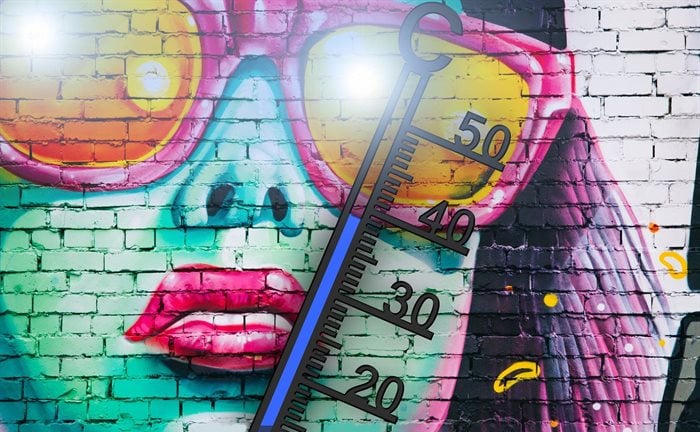Let's rewind back to 2017/18 when the Western Cape experienced a water crisis and how Day Zero wasn't just a name of a 2007 movie about three friends counting down to the day they have to report for military duty, but in fact, a reality for over four million of its residents who counted down the days as water supplies dropped ever closer to Day Zero - the day taps were expected run dry.
South Africa has experienced a spate of water shortages since 2015, with several provinces being heavily affected more recently in 2022. Climate change has been one of the biggest contributing factors to these shortages as rainfalls were delayed and dam levels decreased, leading to droughts across the country.
Over the years, as we become more aware of this ongoing crisis, there has been growing recognition within the arts and cultural sectors about the urgency of the climate crisis and opportunities for change.
Cultural and arts organisations have over the years responded with events, performances, and exhibitions that deal directly with climate issues - creating even more awareness. Examples include Global Citizen, the global social action platform, which hosts music festivals across the globe to raise funds that are used to solve some of the world’s biggest challenges.
But how does culture play a role in climate change?
"Culture is our shared notion of existence, our collective stories, customs, norms and values, and those who work as cultural practitioners are constantly interpreting, reinventing, and leading in this space. Cultural practitioners have the capacity to make complex scientific and academic ideas accessible and relevant, and they can play an important role in the design of solutions, some of them unexpected, so that people can grasp and action change in their daily lives," says Ashraf Johaardien, CEO of Business and Arts South Africa (Basa).
As a result of the deepening climate crisis, this continues to impact every sector of the economy.
Wesley Morgan 18 Jan 2023 According to the South African Cultural Observatory’s recent report The Economic Mapping of the Cultural and Creative Industries in South Africa 2022, it was found that the cultural and creative sectors contributed 2.97% to the South African GDP, but their influence is felt in many other intangible ways.
Says Johaardien, who is also a multi-award-winning playwright, actor, and producer, "Creative influence is felt in everything we touch. From clothing to advertising and product design, to what we hear, watch, and read, creatives are valuable contributors to the economy. As we rethink our economies for a more sustainable world, it is often the cultural and creative industries that respond first. They have a healthy capacity for agility and are able to work well within changeable spaces; many creatives are already working along circular economy principles and within value-aligned communities."
Locally, Basa and Rand Merchant Bank (RMB), with support from the Industrial Development Corporation of SA (IDC), have introduced the Climate/Culture Programme (CCP).
This programme is the beginning of a pressing and much-needed conversation about how the Creative and Cultural Industries (CCI) are responding to the climate emergency. Climate/Culture offers a platform for deeper discussion and dissemination and supports practitioners within the South African cultural and creative industries.
Basa has opened the conversation by recording and sharing talks from inspiring cultural activists who are working with or on climate and sustainability initiatives. These talks also speak to the ideas where we can start to take action.
Watch more videos at https://climateculture.basa.co.za.
The purpose of the Basa’s Climate/Culture Programme is to recognise that the cultural sector has a vital role to play in the climate response and secondly to get people thinking, dreaming, connecting, and taking action.
"Creatives are cultural interpreters and are often able to go beyond the page to inspire change. Think of the documentaries of David Attenborough, the cultural signals created by Banksy, and protest organisations such as Extinction Rebellion, who weave performative elements into their protests.
"In fashion, there is a shift towards repurposing clothing and increased use of recyclables. Fashion designers like Twyg Sustainable Fashion Awards Changemaker Award recipient, Cleo Droomer, are also reinventing the trajectory and purpose of clothing for a more sustainable world," notes Johaardien.
African visual artists are consistently exploring and celebrating our relationship with the natural world as evidenced through the works of artists such as the 2021 Standard Bank Young Artist, Buhlebezwe Siwani, and Imiso Ceramics, as well as creative projects such as Cape Town-based Baz-Art's use of urban art to engage the public.
Baz-Art’s ‘Walls 4 Water’ project was designed to bring awareness to South Africa’s high levels of inequality and unequal access to water and is one of several projects they have worked on to accelerate climate awareness.
'By weaving sustainability into our everyday environments, creatives can truly lead the change' - Ashraf Johaardien
It's not revolutionary to say that the risk to humans of climate change depends on how exposed and sensitive we are to the messages infiltrated through culture and society. Cultural change requires a conscious and active redesign, and who better to invite to the table than designers, cultural innovators, and creatives alike to work together for the greater good.
If you are interested in being at the intersection of climate and culture, join the community today: https://tinyurl.com/3ahctbj8.









































